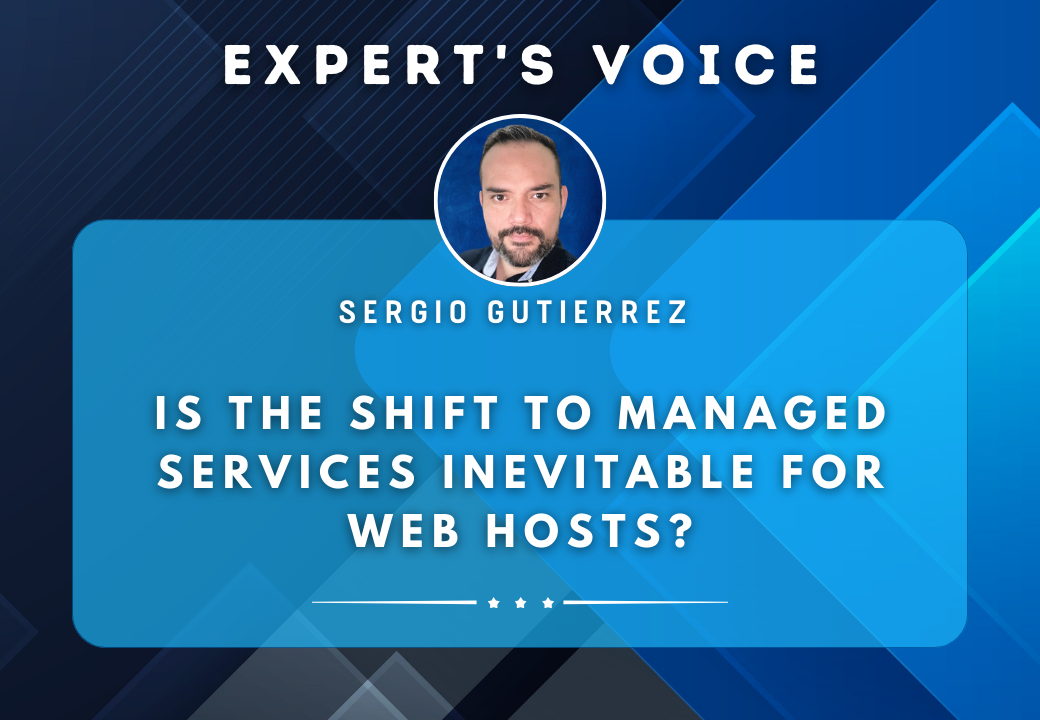The Changing Landscape of Cloud and Hosting Services
In today’s digital world, every business needs to leverage cloud technology, whether for internal operations (accounting, ERP, intranets) or for delivering services to customers (eCommerce, SaaS applications, websites). With an overwhelming number of options available, including hyperscalers (AWS, Azure, GCP), traditional hosting with private or public clouds, and cloud-native applications like Atlassian or QuickBooks, differentiation has become increasingly difficult for hosting providers.
The reality is that competing on price alone is no longer a viable strategy. Owning your own hardware and infrastructure to provide hosting services at a competitive level requires substantial capital expenditure (CapEx). For data centers, you’re often locked into long-term commitments with colocation providers to secure favorable pricing, but this comes with its own challenges—planning upgrades, handling replacements, managing outages, ensuring high availability, and constantly innovating to keep up with industry trends.
In hosting, stagnation equals failure. To survive, hosting providers must evolve beyond infrastructure and offer value-added services that set them apart.
The Shift Towards Managed Services
Since competing on price is impractical, the key to success lies in differentiation. The biggest opportunity in the hosting industry today is the rise of Managed Cloud Services. Many SMBs lack the budget for a full-fledged IT department but still need cloud technology to remain competitive. They cannot afford the learning curve of cloud adoption, and they need experts to guide them in maximizing the potential of cloud platforms.

Managed services fill this gap by offering businesses the expertise they need without requiring them to hire in-house specialists. This trend isn’t limited to SMBs—even larger companies with dedicated IT departments struggle with cloud complexity. While they may have skilled teams, they are not necessarily cloud experts. Here, the co-managed IT model becomes an attractive option, allowing businesses to leverage external cloud specialists who work alongside their internal IT teams.
This shift presents a unique opportunity for hosting providers:
- Offering tailored Managed Services for cloud adoption, optimization, and security
- Providing co-managed cloud solutions for IT teams that need additional expertise
- Ensuring businesses maximize their cloud investments without unnecessary complexity
The Demand for Flexibility: Self-Service vs. Managed Services
Interestingly, while many businesses want Managed Services, they also demand a degree of self-service control. This creates an expectation for hosting providers to deliver a hybrid model—allowing customers to handle certain tasks while offering expert intervention when needed.
Achieving this balance requires the right tools and automation to provide customers with on-demand management while ensuring high-touch support when necessary. This means hosting providers need to:
- Offer intelligent self-service dashboards for customers who want hands-on control
- Provide proactive monitoring and automation to prevent issues before they arise
- Allow customers to easily switch between self-service and managed support as their needs evolve
Those who can execute this hybrid approach effectively will stand out in an increasingly competitive market.
The AI Factor: Revolutionizing Managed Services
A new force is shaping the future of managed services: Artificial Intelligence (AI). AI has the potential to automate many aspects of cloud management, including:
- Predictive maintenance and automated troubleshooting
- Intelligent workload balancing and performance optimization
- AI-driven security monitoring and anomaly detection
However, AI presents a paradox—while it enhances efficiency, most customers still prefer human interaction when dealing with complex issues. The key challenge for hosting providers is to determine what should be automated and what requires human expertise. Striking the right balance is essential to ensuring AI enhances service quality rather than replacing the human touch that customers value.
A forward-thinking hosting provider must:
- Leverage AI for automation while maintaining real-human support for complex interactions
- Offer AI-powered insights but allow customers to engage directly with experts when needed
- Ensure AI-driven chatbots and ticketing systems complement rather than replace customer support teams
Defining Service Expectations: Avoiding the Managed Services Black Hole
One of the biggest challenges in offering managed services is scope creep—where customer expectations grow beyond what was initially agreed upon. Many customers assume that Managed Services are all-inclusive, which can quickly become a resource drain for providers.
To avoid this, hosting providers must:
- Clearly define service boundaries—what is included and what incurs additional costs
- Establish tiered support levels to match different business needs
- Implement fair usage policies to prevent excessive demands on support teams
Managed services should be an opportunity for profitability, not a black hole that consumes resources without proper compensation. Transparent pricing and service agreements are essential to maintaining sustainable operations.
The Future: Hosting as a Service, Not Just Infrastructure
The web hosting industry is undergoing a fundamental transformation. The traditional model of renting servers is no longer enough—businesses need cloud expertise, flexible management options, and AI-enhanced services. The winners in this new era will be those who go beyond infrastructure and provide real, value-added managed solutions.
For hosting providers, the future lies not in selling space, but in selling expertise, automation, and peace of mind. Those who embrace this shift will not only survive but thrive in the evolving cloud ecosystem.
Sergio Gutierrez
Author of this post.
